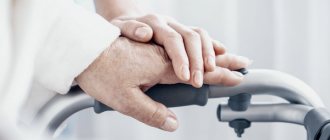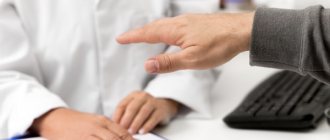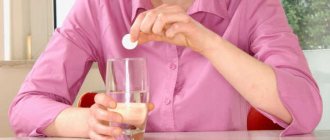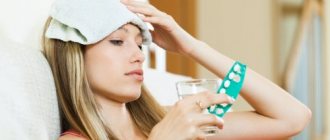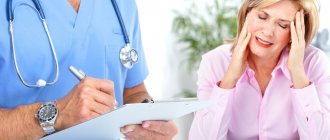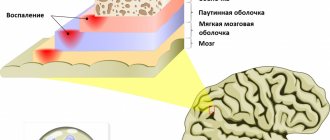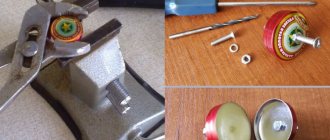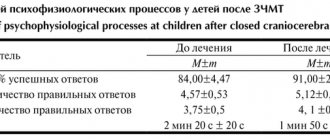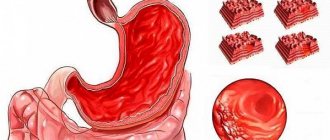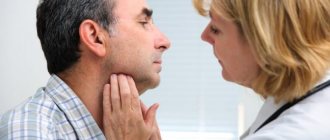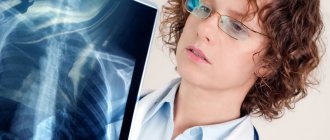Every person experiences headaches from time to time. It is associated with various external factors and goes away quickly without taking pills. 15% of people suffer from frequent, severe headaches. Doctors at the Yusupov Hospital conduct their examination using modern instrumental and laboratory diagnostic methods.
For headaches, people prescribe analgin, no-shpu, askofen, citramon. They relieve pain, but do not affect the cause of the pain. After determining the cause of the headache, doctors at the neurology clinic carry out complex therapy. Rehabilitation specialists use innovative non-drug treatments.
Professors and doctors of the highest category discuss complex cases at a meeting of the Expert Council. Leading specialists in the field of headache treatment collectively develop further tactics for patient management. Patients have the opportunity to undergo complex examinations and treatment at partner clinics of the Yusupov Hospital.
Migraine symptoms
The first symptom of migraine is the so-called migraine aura. This is not a mandatory symptom, but according to statistics, it occurs in more than 30% of patients. A migraine aura can manifest itself as:
- Visual disturbances - circles, zigzags, blind spots before the eyes;
- Hearing disorders - tinnitus, slight loss of coordination;
- Olfactory disturbances - a sharp increase in the sense of smell, a feeling of an obsessive smell nearby;
- Tactile disturbances - pain or increased sensitivity of the skin, goosebumps, numbness in the face or limbs.
Some patients feel a migraine in advance - they experience weakness, irritability, tearfulness, increased appetite or complete loss of appetite.
Subsequent symptoms of an already occurring migraine:
- Severe, sometimes simply unbearable headache in one side of the head (usually the right). If you concentrate, you will be able to clearly feel the source of pain. It can last from several hours to 3 days.
- Nausea, abdominal discomfort, sometimes vomiting. Complete lack of appetite.
- Photophobia. Even dim light can increase pain or cause discomfort.
- Sound phobia. During a migraine, even a whisper nearby can be painful.
- Weakness. The stronger the pain increases, the stronger the feeling of weakness. During a severe attack, fainting may occur.
Patients with migraine are advised not to wait for an attack to develop, but to stop it in a timely manner. If possible, at the aura stage or the first signals of a developing migraine.
What medications relieve headaches during a hangover?
Drug therapy is an effective way to cope with hangover headaches when folk remedies are powerless. To alleviate the condition, you can drink a sorbent, analgesic or antispasmodic. Before taking, you should carefully study the instructions and measure your blood pressure. Many drugs are incompatible with alcohol, have contraindications and can only make you feel worse. Some medications aggravate the condition with high or low blood pressure.
Sorbents
Absorbent drugs are the first aid for alcohol abuse. They provide quick detoxification and help get rid of unpleasant hangover symptoms. The simplest and most popular remedy is activated carbon. The sorbent has a quick effect and alleviates the condition. The drug should be taken in a minimum dosage of 1 tablet per 10 kg of weight. The stronger the intoxication, the higher the dose of the medication, so it is better to drink activated carbon in the form of a soluble powder.
Enterosgel is a modern analogue of activated carbon. To alleviate the condition, even with severe intoxication, only 1-3 tablespoons of sorbent are enough. The drug is used both for hangover syndrome and for its prevention. If you drink Enterosgel before drinking alcohol, it will reduce the degree of absorption of alcohol, reduce the unpleasant consequences of drinking alcohol, but will prevent the desired effect of intoxication.
Sorbents are compatible with other medications. They should be taken at intervals of 1.5-2 hours from taking other medications. Otherwise, the effectiveness of the drugs will decrease.
No-Shpa
The plant-based drug dilates blood vessels and relieves spasms, which helps eliminate headaches due to hangover syndrome. No-Spa slows down the absorption of alcohol, improves well-being, and facilitates the functioning of the liver and stomach. The drug should not be taken if you have chronic kidney or liver diseases. Simultaneous use of No-Shpa with alcohol can lead to swelling and a sharp decrease in blood pressure.
Aspirin
The drug thins the blood and has an analgesic effect. Aspirin acts within 10-15 minutes after administration, normalizes the condition of blood vessels, improves blood flow and quickly relieves hangover symptoms.
The drug should not be taken if you have gastrointestinal diseases. Aspirin may cause bleeding in people with chronic stomach problems or after exceeding the recommended dosage of the medication.
Ibuprofen
Ibuprofen has a strong analgesic effect and does not irritate the gastric mucosa, unlike other painkillers, so it can be taken even for gastrointestinal diseases. The drug acts for 3-4 hours. The necessary effect of the drug for a hangover occurs only with the simultaneous consumption of a sufficient amount of liquid.
Alkozeltzer
The drug contains acetylsalicylic acid, thins the blood, has an anti-inflammatory and analgesic effect. Available in the form of water-soluble tablets, it has a pleasant taste. Like Aspirin, Alkozeltzer should not be taken if you have problems with the gastrointestinal tract. An analogue of the drug is Alka-Prim.
Antipohmelin
It helps not only to get rid of headaches during a hangover, but also to prevent unpleasant symptoms if you drink the drug before a feast. Antipohmelin does not have a detoxifying effect, therefore it is ineffective for alcohol poisoning.
Medicines help to quickly cope with headaches, but have contraindications. Before taking medications, it is better to consult a doctor to avoid side effects.
Causes of migraine
75% of all patients with migraine reported having migraine in their immediate family. The hereditary factor plays an important role here. The likelihood that a child of one of the parents with migraines will also develop migraines is also 75%.
To date, a connection between migraine and the neuropeptide CGRP, which is involved in the development of a migraine attack, has been discovered. During a migraine, the patient's level of only this protein increases, and after artificial administration of CGRP, the subjects began to experience a headache attack.
The reason why the level of this neuropeptide increases is still unknown.
In what cases should you consult a doctor?
In people who rarely drink, a hangover headache usually goes away within 1-3 days after proper sleep and rest. You should immediately consult a doctor if you are dependent on alcohol and experience the following symptoms:
- throbbing headache localized in one place, most often in the parietal region;
- dizziness, nausea, vomiting;
- blurred vision;
- swelling;
- headache does not go away for 3 or more days, gradually increases;
- confusion.
A severe headache, which is accompanied by these symptoms, is a sign of acute intoxication, and can also be a harbinger of a hypertensive crisis, cerebral edema, heart attack or stroke. People over 35 years of age who suffer from chronic diseases are at particular risk. If one or more signs appear after exceeding the dose of alcohol, it is better to consult a narcologist.
The doctor will conduct a thorough examination, measure pulse, blood pressure, and, if necessary, prescribe a blood test and cardiogram. Based on the results of the examination, the specialist will prescribe the necessary medications and give recommendations for getting rid of headaches. An IV will help you get out of an unpleasant state quickly and safely. During infusion therapy, sorbents, antispasmodics, painkillers, and a vitamin complex are used. Unlike oral administration, medications administered intravenously act within 30-60 minutes, quickly relieving headaches and other symptoms of a hangover.
If the patient has a long-term drinking binge, has chronic diseases, alcohol dependence, or life-threatening symptoms, hospitalization is recommended. The clinic uses additional methods for treating headaches:
- plasmapheresis
. Alcohol enters the bloodstream during intoxication, so hardware blood purification quickly removes toxins and eliminates hangover symptoms. Plasmapheresis is effective in the treatment of concomitant diseases; - xenon therapy
. Xenon inhalations have a mild sedative and analgesic effect. The gas stimulates metabolic processes and restores nervous activity. Xenon therapy quickly eliminates headaches and has no contraindications or side effects.
If you experience even a minor hangover headache, it is better not to experiment with traditional methods, not to self-medicate, but to seek help from a specialist. An experienced narcologist will help you quickly cope with an unpleasant condition without consequences for your health.
What causes migraines?
There are a number of potential triggers that can trigger a migraine:
- Wine, dark chocolate, cheese, honey, coffee;
- Bright or flashing lights are a common migraine trigger;
- The sound is too harsh or loud;
- Menstruation. In women with this type of migraine, attacks occur in the first days of the cycle;
- Too much or too little sleep. For migraine patients, it is important to know your sleep norm and try to stick to it;
- Stress.
But in this matter everything is individual. Migraines can occur suddenly even after waking up and being well rested.
Aspirin
The active ingredient in Aspirin is acetylsalicylic acid. We are sure that this drug is in every home medicine cabinet. “Aspirin” can be taken for inflammatory diseases, problems with cerebral circulation, hangover syndrome, to thin the blood (as a prevention of thrombosis). Aspirin is often prescribed in the complex treatment of vascular diseases. Contraindications include bleeding disorders, stomach and intestinal ulcers, etc.
Aspirin
Bayer Schering Pharma (Bayer), Germany
The drug Aspirin is a non-steroidal anti-inflammatory drug with analgesic, antipyretic and anti-inflammatory properties.
from 5
5.0 1 review
852
- Like
- Write a review
What to do if you have a migraine?
- Take a drug that stops the attack as soon as possible. NSAIDs may help in the early stages, but triptans are the best treatment today;
- Lie down comfortably in a dark and cool place, provide access to fresh air;
- If necessary, place a towel moistened with cool water on your forehead;
- Avoid exposure to light and sounds;
- Try to sleep;
- If medications and sleep do not help, and the attack becomes more and more painful, you need to call an ambulance.
How to get rid of headaches yourself using traditional methods
There are several ways to get out of an unpleasant condition at home without the help of a doctor. These methods are suitable if the person suffering from headaches does not have an alcohol addiction, and the drinking was a one-time occurrence.
Drinking regime
Alcohol dehydrates the body and washes away beneficial microelements, so after a heavy libation you should take more liquid. If you abuse alcohol, it is recommended to drink:
- water. Preference is given to alkaline mineral water without gas. It contains potassium, magnesium, and helps quickly restore electrolyte balance. Regidron solution has a similar effect. Within a few hours after administration, it significantly improves well-being, relieves pain, as it accelerates the elimination of toxins;
- brine. In just a few minutes it will improve your well-being, give you vigor and relieve discomfort due to its high content of electrolytes. It is best to drink cabbage brine. It contains succinic acid, which stimulates the liver, accelerates the breakdown and excretion of ethanol, and eliminates hypoxia of brain cells. Brine should not be consumed by people with high stomach acidity;
- freshly squeezed juices, fruit drinks;
- ginger decoction. It has a mild sedative effect, restores vascular function, eliminates headaches, and thins the blood. The drink should not be taken by people with gastrointestinal diseases.
It is better to avoid tea and coffee. Drinks have a diuretic effect and wash away beneficial microelements, which are already in short supply after alcohol abuse.
In addition to following the drinking regime, it is recommended to eat vegetables and fruits that contain sufficient liquid - cucumbers, broccoli, zucchini, celery, watermelon, citrus fruits. Walking in the fresh air and sleeping in a cool, well-ventilated room will also help cope with headaches.
Water treatments
A hot bath, steam bath, or sauna will speed up the removal of toxins and reduce swelling. Only people who do not have problems with the cardiovascular system can take the procedure, otherwise irreparable harm to health can be caused. For the same reason, you should not take a contrast shower. This threatens a heart attack or stroke.
To improve your well-being, it is best to take a bath with water at room temperature. It will allow you to relax and have a tonic effect. You can add herbs that have a calming and relaxing effect to the water - chamomile, valerian, motherwort, lemon balm, mint. It should be remembered that herbal medicine has contraindications and can cause a severe allergic reaction.
New dose of alcohol
Alcohol abusers believe that the easiest and most effective way to get rid of headaches is to get drunk. A glass of beer or a glass of vodka will bring relief in a matter of minutes, but in no case should you resort to this method
. Unpleasant sensations can be eliminated for a short time. Then the pain will return and become more intense. To alleviate the condition, you will need a new dose of alcohol. This will create a binge, the exit from which will require significant effort. In this case, you cannot do without the help of a narcologist.
Traditional methods of combating headaches that seem harmless at first glance may turn out to be useless, and in some cases, aggravate the condition and lead to complications. Even if you feel slightly unwell after drinking too much alcohol, it is best to consult a doctor. The doctor will give advice on how to quickly and safely get out of a painful condition.
Convulsions
You might think that seizures occur only with epilepsy. Therefore, when they appear, anticonvulsants are definitely needed. In addition to epilepsy, there may be many other conditions that have nothing to do with it, but which may be accompanied by seizures:
- Cerebrovascular disease, age over 75 years, and hemorrhagic strokes often cause the onset of acute symptomatic seizures.
- Traumatic brain injuries.
- Infectious diseases of the central nervous system (meningitis, encephalitis, HIV infection).
- Oxygen starvation of the brain.
- Intoxication of the body.
- Taking medications.
- Acute metabolic disorders, for example, hypoglycemia in the treatment of diabetes mellitus, electrolyte imbalance.
- Withdrawal syndrome when stopping alcohol consumption.
- Taking large doses of alcohol.
- Taking psychotropic drugs (psychotropic stimulants - cocaine, crack, ecstasy).
- Temperatures above 38.5°C in children under 7 years of age can cause febrile seizures.
- Liver failure.
- Parkinson's disease.
Therefore, self-administration of anticonvulsants without a doctor’s prescription is prohibited. First you need to establish the cause of the problem and only then treat it.
